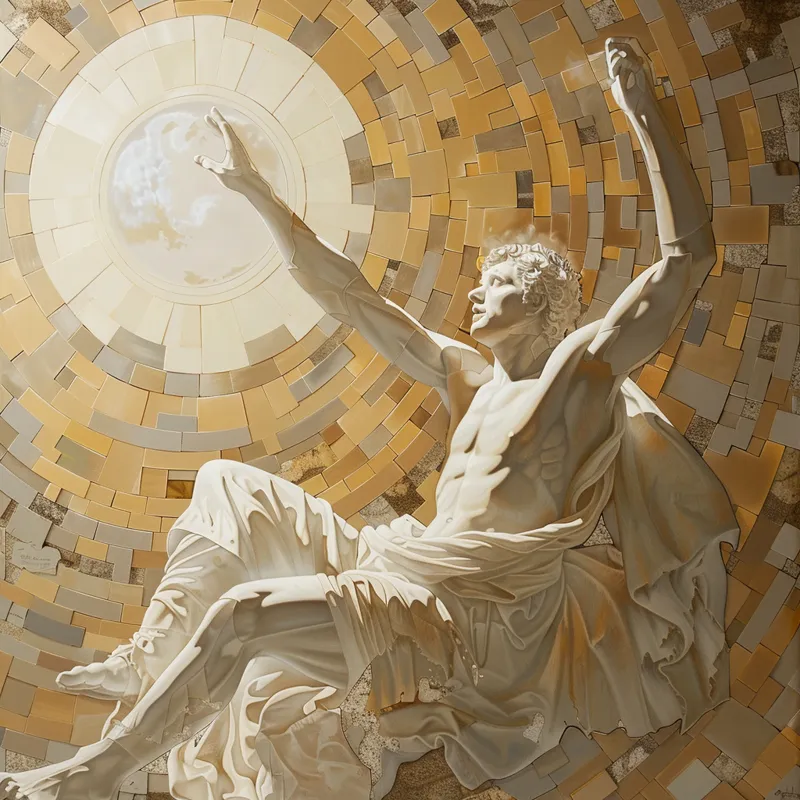
The garden of the ideal
The concept of the 'walled garden' is rich in symbolism and history, transcending its literal meaning to embody a multitude of cultural, spiritual, and philosophical ideas. Through various cultures and epochs, these enclosed spaces have been more than just physical entities; they've represented ideals, beliefs, and deep-seated human yearnings.
In this exploration, we delve into seven distinct facets of the walled garden, each revealing a unique tapestry of meaning and significance.
Historical Origins

The sky's reflection
The origins of the walled garden trace back to the earliest civilizations. In ancient Mesopotamia, gardens were walled for practical reasons - to protect from animals and invaders, and to create a microclimate for plants. These early gardens were not just functional but also held spiritual significance, often associated with the divine or the paradisiacal.

The synthesis of nature and...
In Persia, the concept of 'Paradise' originally meant a walled garden. Persian gardens were designed with a quadrilateral layout, symbolizing the four elements of nature. The idea was to create a representation of heaven on earth, an earthly utopia enclosed by walls. This design philosophy influenced garden architecture across the world, particularly in Islamic and European cultures.
Biblical and Mythological Significance
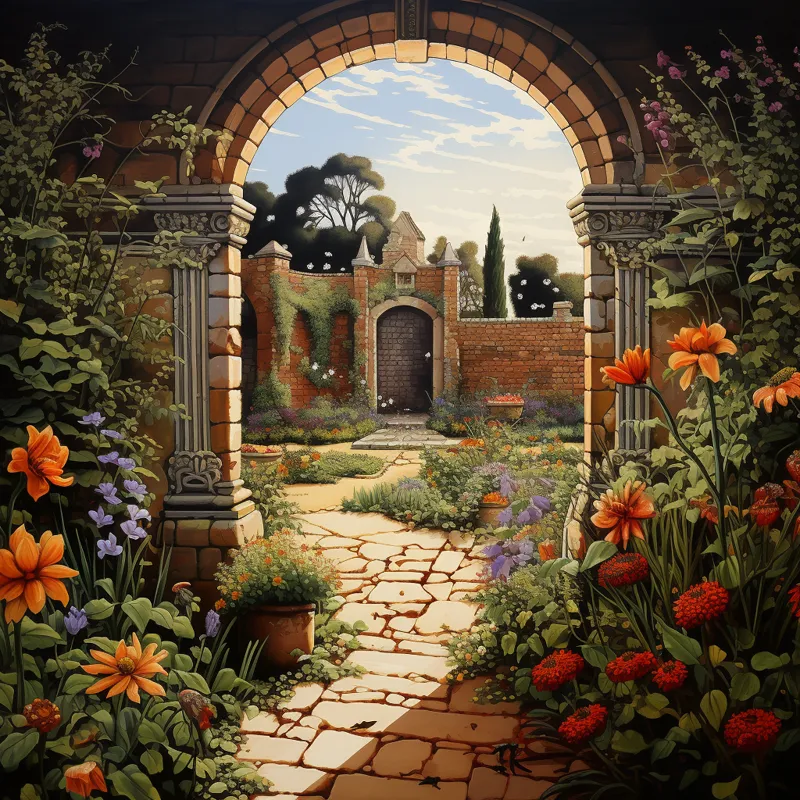
Feels like home
In Christian and Jewish traditions, the Garden of Eden is often conceptualized as a walled garden. This imagery represents a place of original innocence, a paradise lost after the fall of man. The idea of a return to this enclosed, sacred space has resonated through centuries of theological thought.
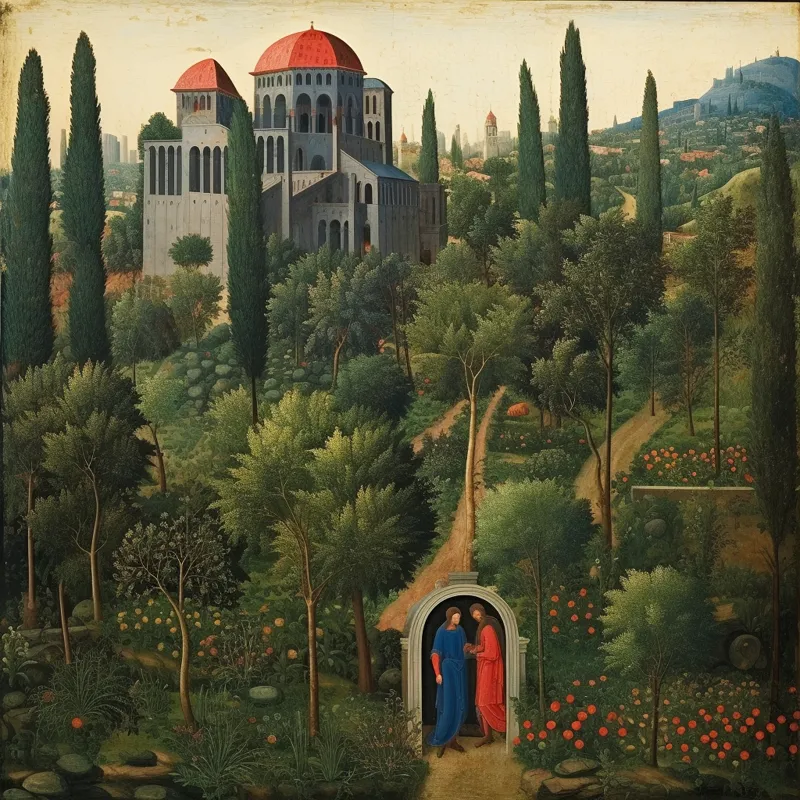
Pocket dimension
In Greek and Roman mythology, enclosed gardens were associated with goddesses like Aphrodite and Venus. These gardens symbolized love, fertility, and beauty, often depicted as idyllic, secluded spaces where deities could interact with mortals. The walled garden here becomes a metaphor for divine interaction and the beauty of nature unspoiled by human intervention.
Chinese and Japanese Gardens

Head in the clouds
In East Asian cultures, particularly in China and Japan, walled gardens hold a different connotation. Chinese gardens, known for their meticulous design, reflect the Taoist principles of harmony between man and nature. The walls in these gardens are not just physical barriers; they symbolize the boundary between the chaotic external world and the ordered beauty within.
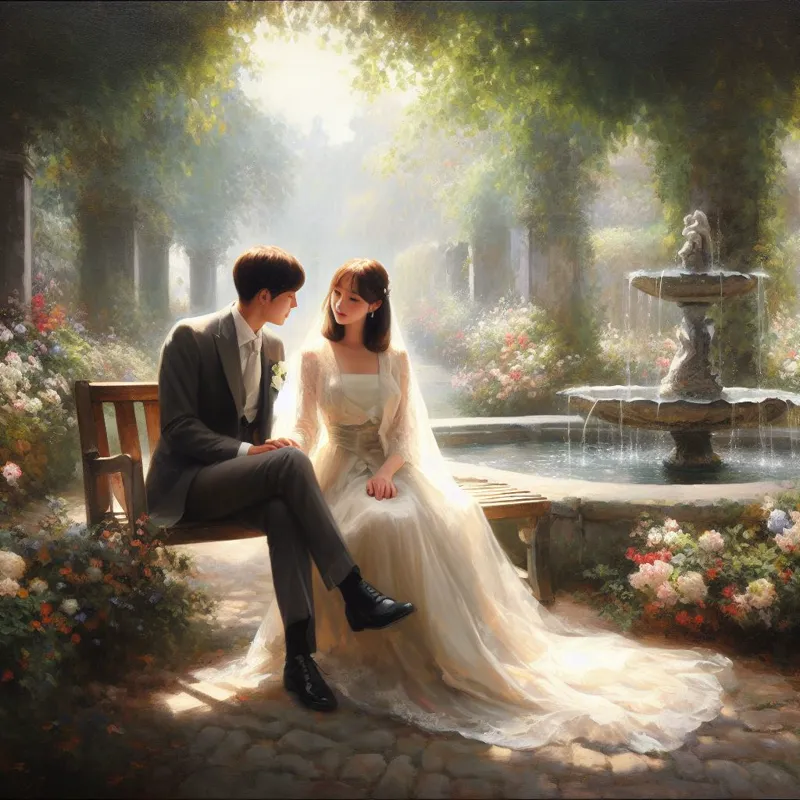
A quiet place
Japanese gardens, while not always enclosed by walls, also embody similar principles. The Zen gardens, for instance, use natural elements like rocks, water, and plants to create a space for meditation and reflection. These gardens are metaphors for the inner journey, encouraging introspection and tranquility.
European Medieval and Renaissance Gardens

On the surface
In medieval Europe, the hortus conclusus, or enclosed garden, was a common motif. It often represented virginity and purity, as seen in religious art depicting the Virgin Mary within a walled garden. This symbolism extended to secular literature as well, where the enclosed garden was a setting for romance and courtly love.

The dream
During the Renaissance, the concept evolved to reflect the humanist ideals of the time. Gardens were designed not just for beauty and contemplation but also for showcasing botanical knowledge and the mastery of nature. The walls served to highlight man's control over the natural world, a theme central to Renaissance thought.
Persian Influence and the Idea of Paradise

Eye of the creator
Persian gardens have arguably had the most profound influence on the concept of the walled garden as a representation of paradise. The Charbagh, or quadrilateral garden design, became a template for Islamic gardens, symbolizing the four rivers of Paradise as mentioned in the Quran. These gardens were architectural marvels, combining aesthetics, geometry, and spirituality.
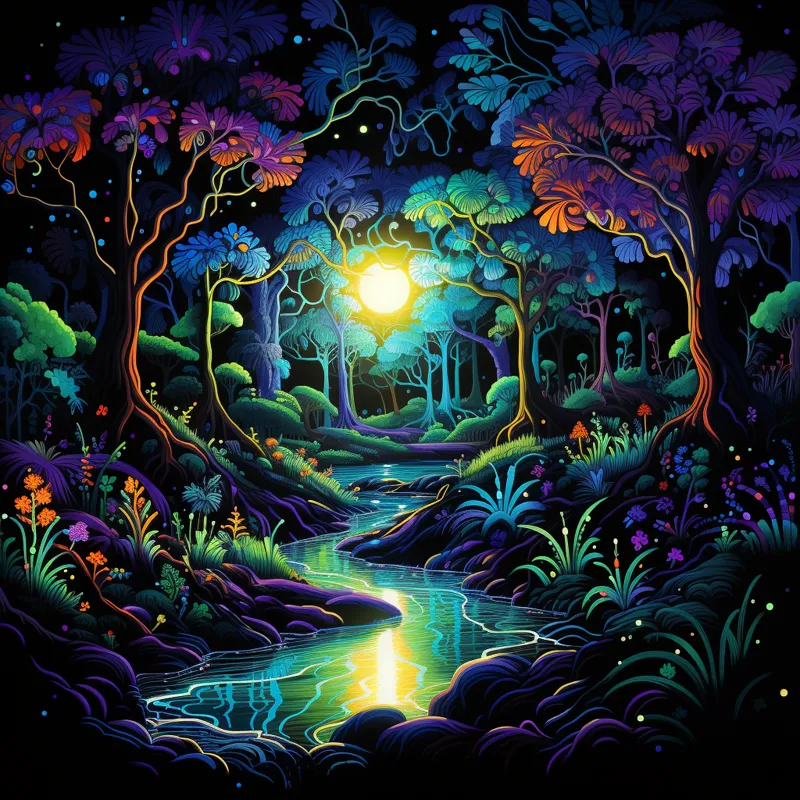
Bio-energy
The influence of Persian gardens extended to the Moorish gardens in Spain, the Mughal gardens in India, and even reached Western Europe. The idea of an enclosed space that captures the essence of heaven on earth resonated across cultures, making the Persian interpretation of the walled garden a universal symbol of paradise.
The Walled Garden in Literature and Art

The dream becomes one
In literature, the walled garden has been a potent symbol. In 'The Secret Garden' by Frances Hodgson Burnett, the garden represents healing, renewal, and the transformative power of nature. It's a space where the characters undergo personal growth and find solace from their troubled lives.

A short glimpse
In art, the motif of the walled garden has been prevalent from medieval tapestries to modern paintings. It often represents an idealized, utopian world, sometimes an allegory for the artist's inner life or a commentary on society. The walled garden in art invites viewers to contemplate the juxtaposition of the cultivated and the wild, the internal and the external.
Spiritual and Philosophical Interpretations

Cycle of rebirth
In many spiritual and philosophical traditions, the walled garden is a metaphor for the human soul or mind. It represents an inner sanctuary, protected from the external world, where one can introspect and connect with the divine. This symbolism is evident in various religious texts and spiritual teachings.

Eden
In philosophical discourse, the walled garden has been used to discuss concepts of self, consciousness, and the nature of reality. It can represent the mind's ability to create its own reality, a safe haven of thoughts and ideas, or the limitations that such seclusion can impose on understanding the broader world.
The 'walled garden' is a multifaceted symbol, deeply rooted in our collective psyche. It transcends its physical form to encapsulate a range of human experiences and aspirations - from the quest for beauty and understanding to the search for spiritual fulfillment. As we have seen through its various interpretations, the walled garden continues to be a powerful metaphor, resonating across cultures and ages, inviting us to explore the depths of its enclosed mysteries.






